A rolled ball screw assembly is metallic, usually steel, and it is made of a threaded rod called the screw in addition to an internally threaded nut whose helical grooves match those of the screw. Inside the grooves and contained within the nut are many small ball bearings typically made of chrome steel. The balls provide smooth motion down the screw as they circulate through the nut. Read More…
Del-Tron Precision, Inc. produces and supplies various automated equipment, such as ball screw actuators. Our engineers have designed our ball screws to offer accuracy that is unparalelled by competitors.

When it comes to ball screws, no one does them better! We offer same day shipping to ensure that your product will be sent to you as soon as possible in order to keep your business moving smoothly.

For over 70 years, Dynatect has provided motion control solutions for a wide range of markets. Our ball screws are custom-engineered for both OEM and replacement applications. Not only can Dynatect manufacture new ball screw assemblies, we can also reverse engineer, optimize and repair ball screws from almost any manufacturer. All work is conducted in a modern ISO 9001:2015 certified facility,...

For repairs, replacements or manufacturing of new ball screws, Robert’s Ball Screw Repair Services has the expertise and capability to exceed your expectations. We can meet your unique needs by custom tailoring quality acme screws, metric ball screws, ground ball screws and even a ball screw assembly. As industry leaders, we offer same day shipment for stock items to minimize customer downtime.

A world leader in thread-grinding, machining and ball screws since 1958, Thread-Craft draws from its experience to provide the best quality product. Our acme screws, metric ball screws, ground ball screws and rolled ball screws are precisely manufactured and cost-effective and we also have the capability to engineer, design and repair custom ball screws. Let our in-house machinists work for you!

More Rolled Ball Screw Manufacturers
Deflectors or return systems retain the balls and keep them circulating through the nut. Rolled ball screws are up to 90% efficient when used with a motor. They are fairly precise with accuracies of several thousandths of an inch per foot and may be custom made. Rolled ball screws are used by many industries for the precise control they offer including the aerospace, computer, electronic, automotive and medical industries.
Ball screws are also frequently used in manufacturing processes and are common in robots, automated assembly lines, material handling equipment, conveyors, machine tools, fly by wire control, precision assembly equipment and more.
There are three main ways that the threads on ball screws are fabricated: through grinding, milling and rolling. Milled screws are the result of machining that uses tools to cut and remove selected material. Ground screws are first machined to their gross shape then case hardened and ground on machines with abrasive materials that spin at rapid speeds. This process allows the resulting ball screws to withstand high temperatures that would otherwise distort the shape and efficiency of the screw.
Ground screws are the most precise option but are also more expensive. Rolled ball screws are made from blank metal workpieces that are cold rolled into the screw shaft. Rolled ball screws are made by using movable and fixed forming dies. A servo maintains the correct pressure and compensates for any changes in screw diameter as the dynamically positioned movable die forms the screw.
The linear axis of the screw, however, cannot be guaranteed past certain points; the rod may not be perfectly cylindrical. Because there is no grinding, machining costs decrease, which makes rolled screws an affordable choice for many manufacturers. After the rolled ball screw shaft is fabricated, the nut must be added to complete the assembly.
The screw and nut do not twist together like a nut and bolt do; instead, the balls spin around the grooves between the threading and allow the nut to slide.

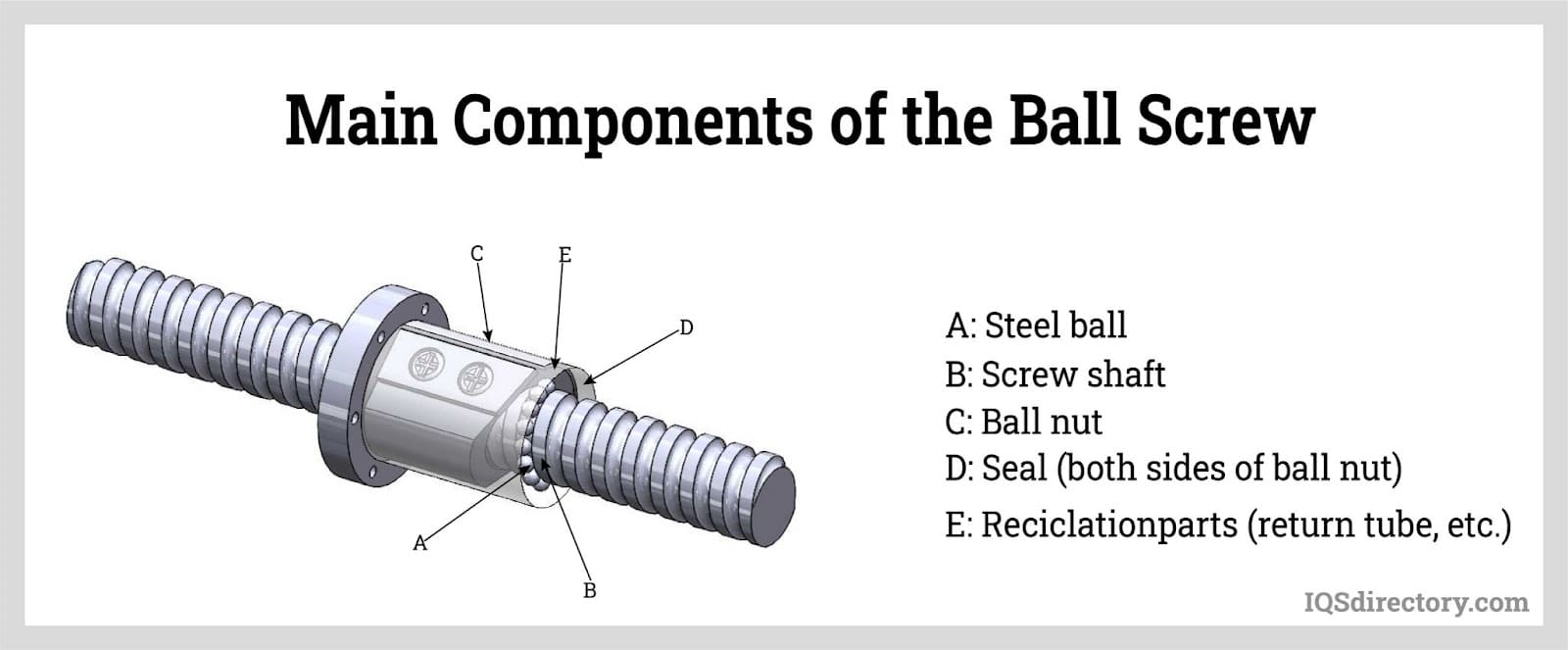
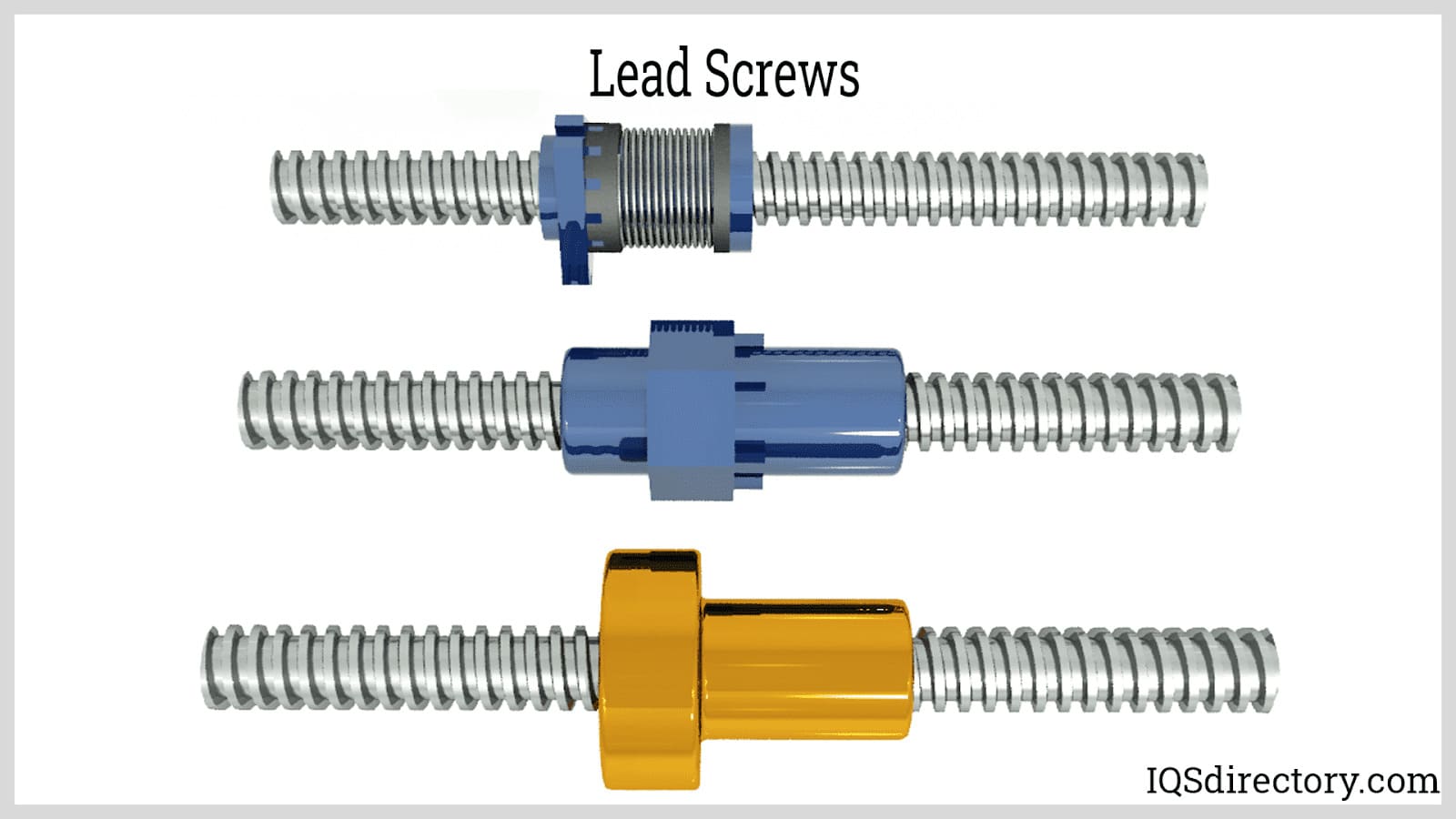
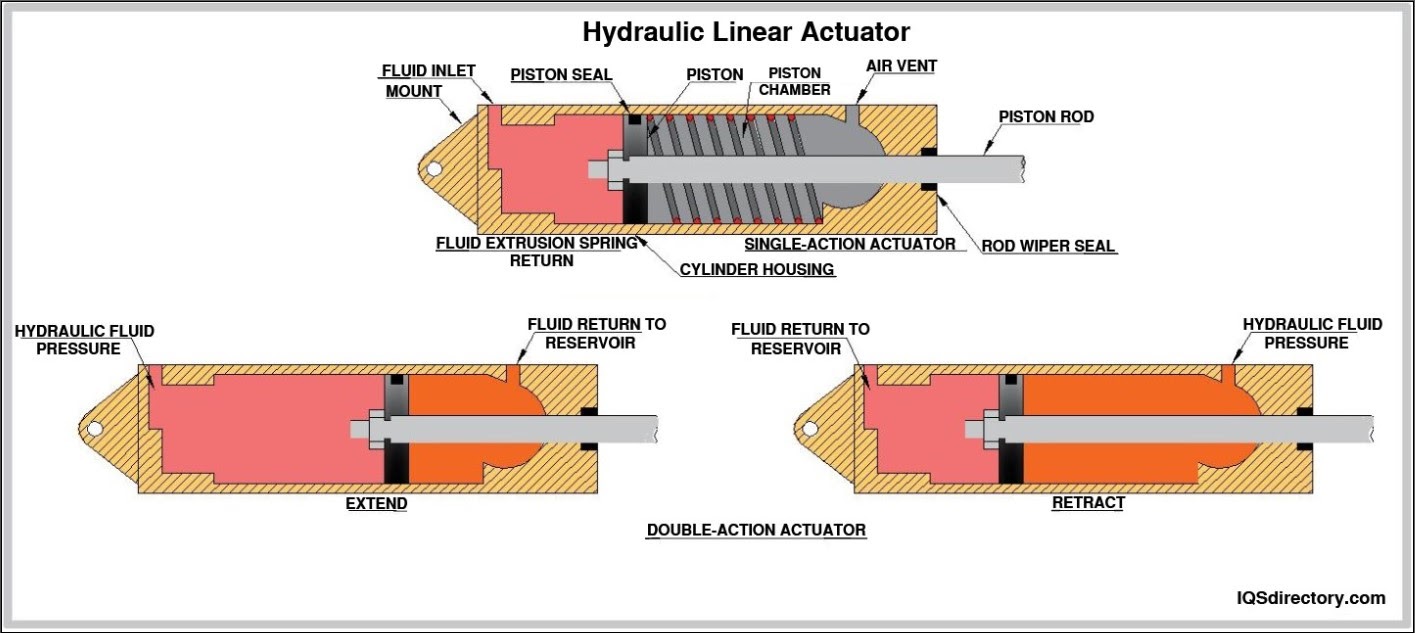
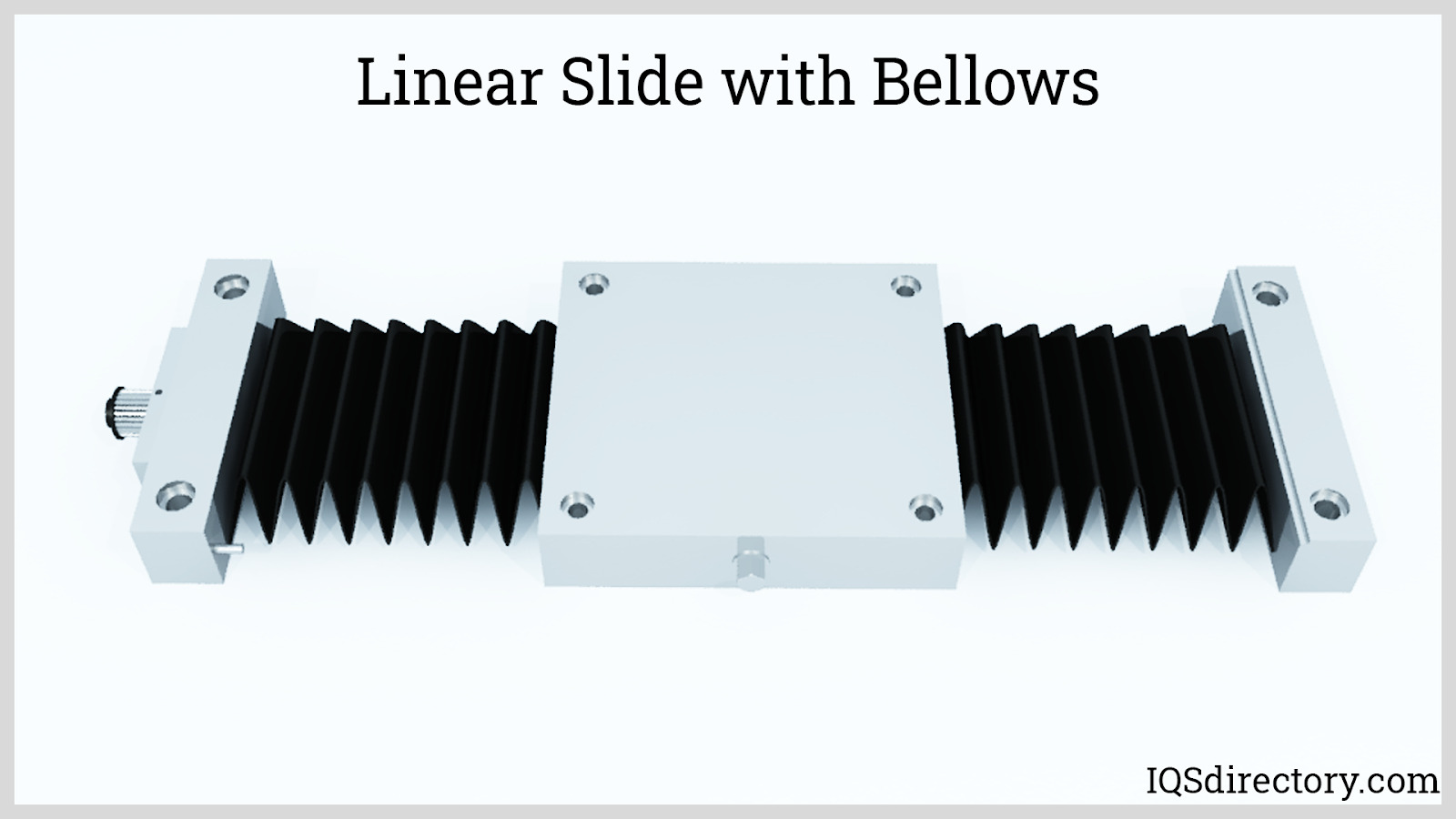
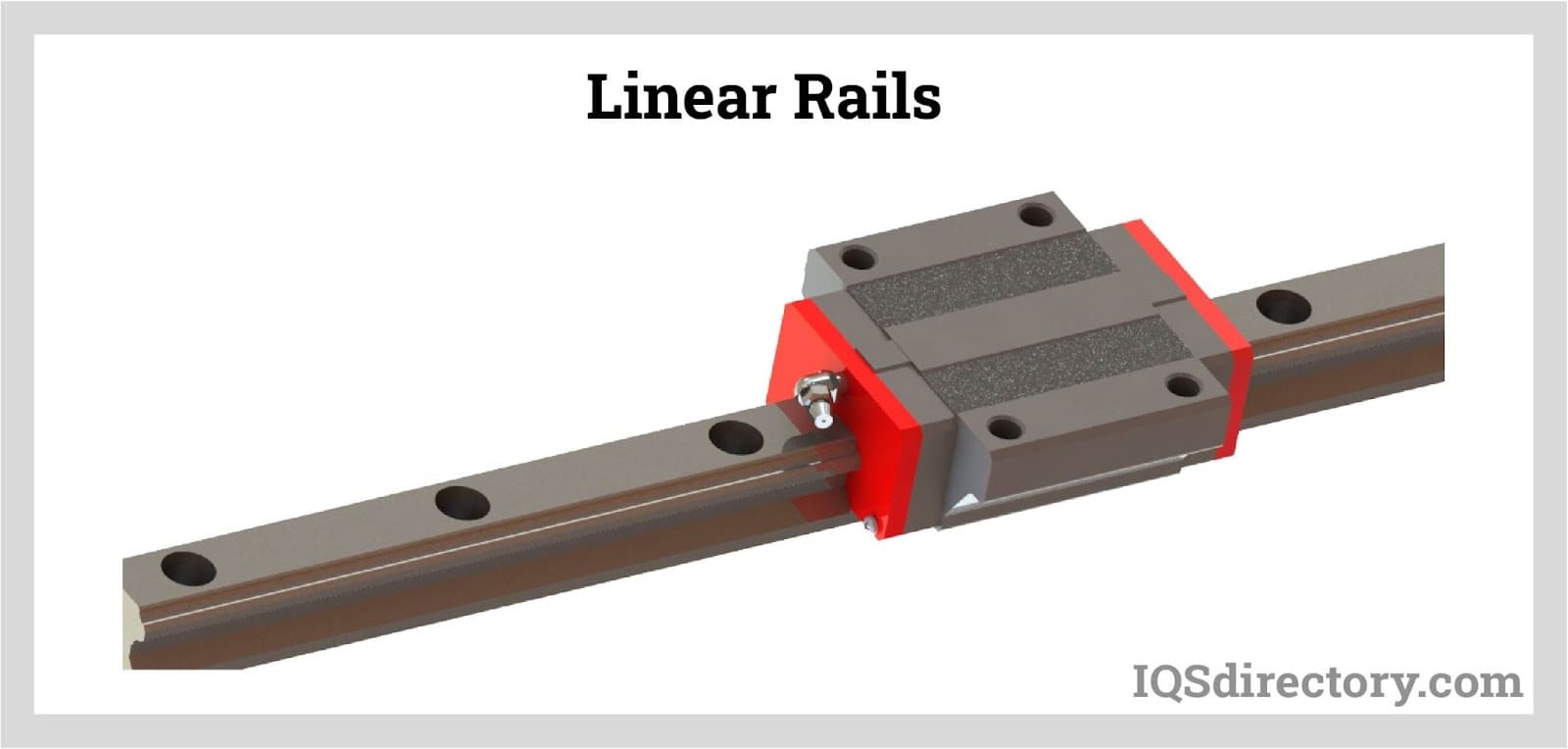
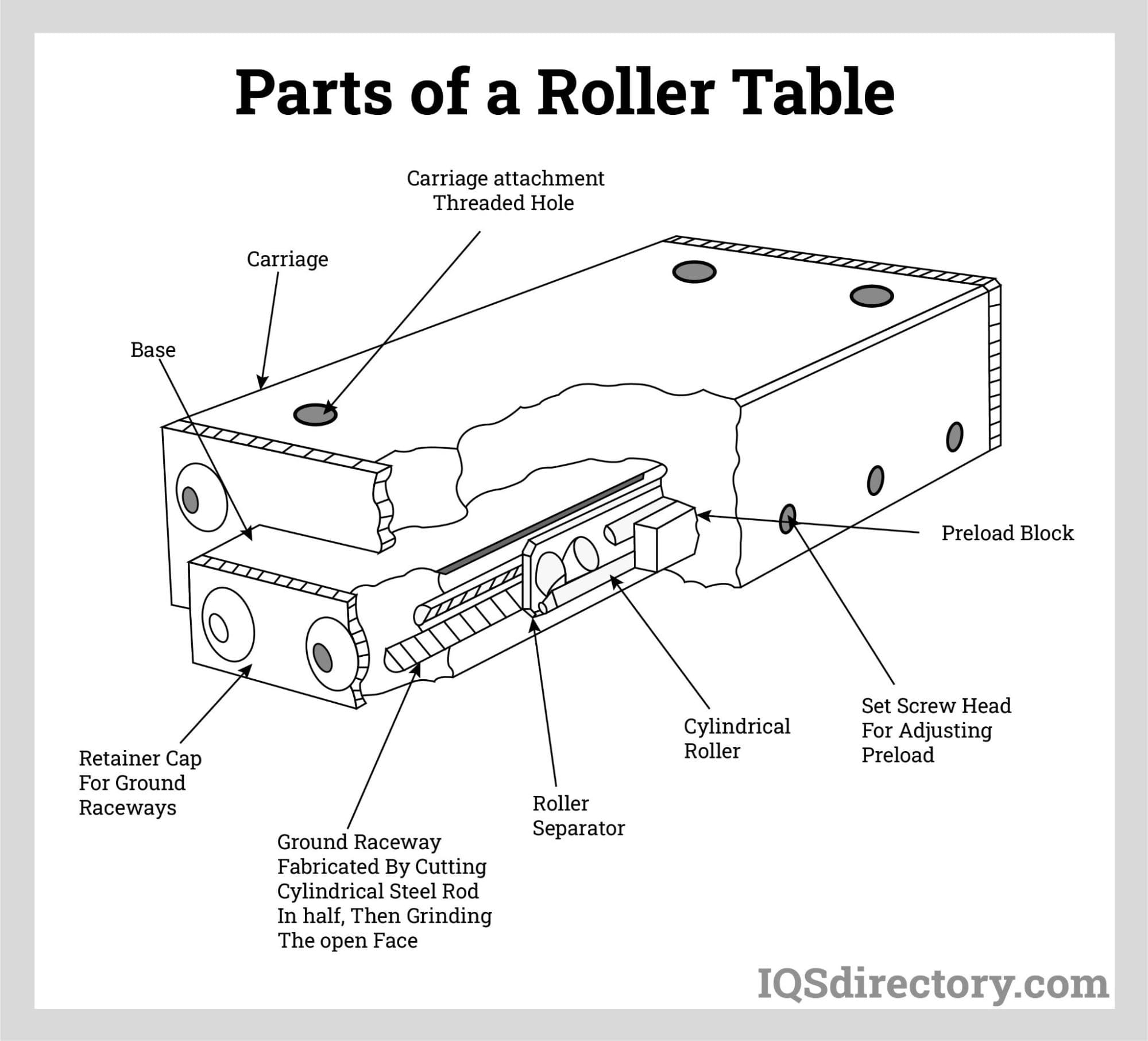
 Ball Bearings
Ball Bearings Ball Screws
Ball Screws Electric Motors
Electric Motors Friction Materials
Friction Materials Gears
Gears Quick Release Couplings
Quick Release Couplings Shaft Couplings
Shaft Couplings Speed Reducers
Speed Reducers Timing Belting
Timing Belting Castings & Forgings
Castings & Forgings Bulk Material Handling
Bulk Material Handling Electrical & Electronic Components
Electrical & Electronic Components Flow Instrumentation
Flow Instrumentation Hardware
Hardware Material Handling Equipment
Material Handling Equipment Metal Cutting Services
Metal Cutting Services Metal Forming Services
Metal Forming Services Metal Suppliers
Metal Suppliers Motion Control Products
Motion Control Products Plant & Facility Equipment
Plant & Facility Equipment Plant & Facility Supplies
Plant & Facility Supplies Plastic Molding Processes
Plastic Molding Processes Pumps & Valves
Pumps & Valves Recycling Equipment
Recycling Equipment Rubber Products & Services
Rubber Products & Services